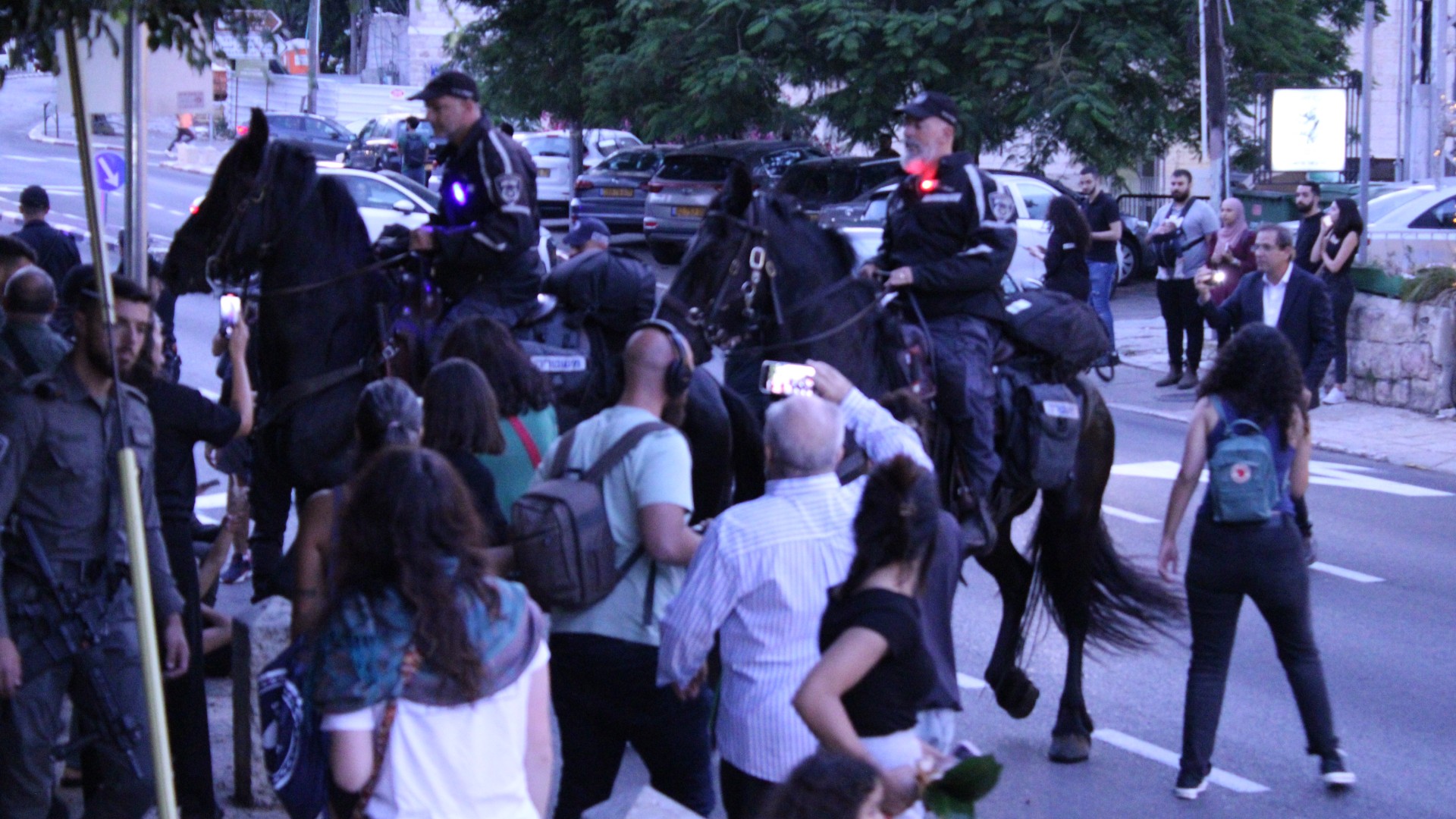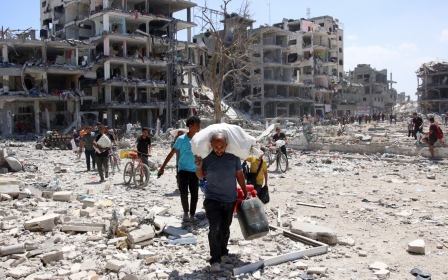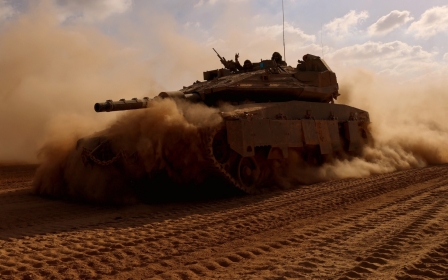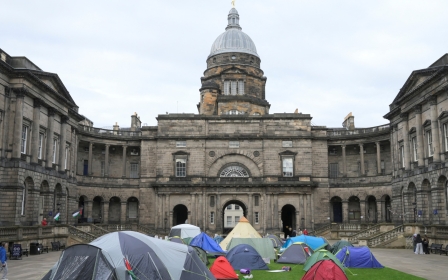War on Gaza: Growing Palestinian protests in Israel met with police brutality
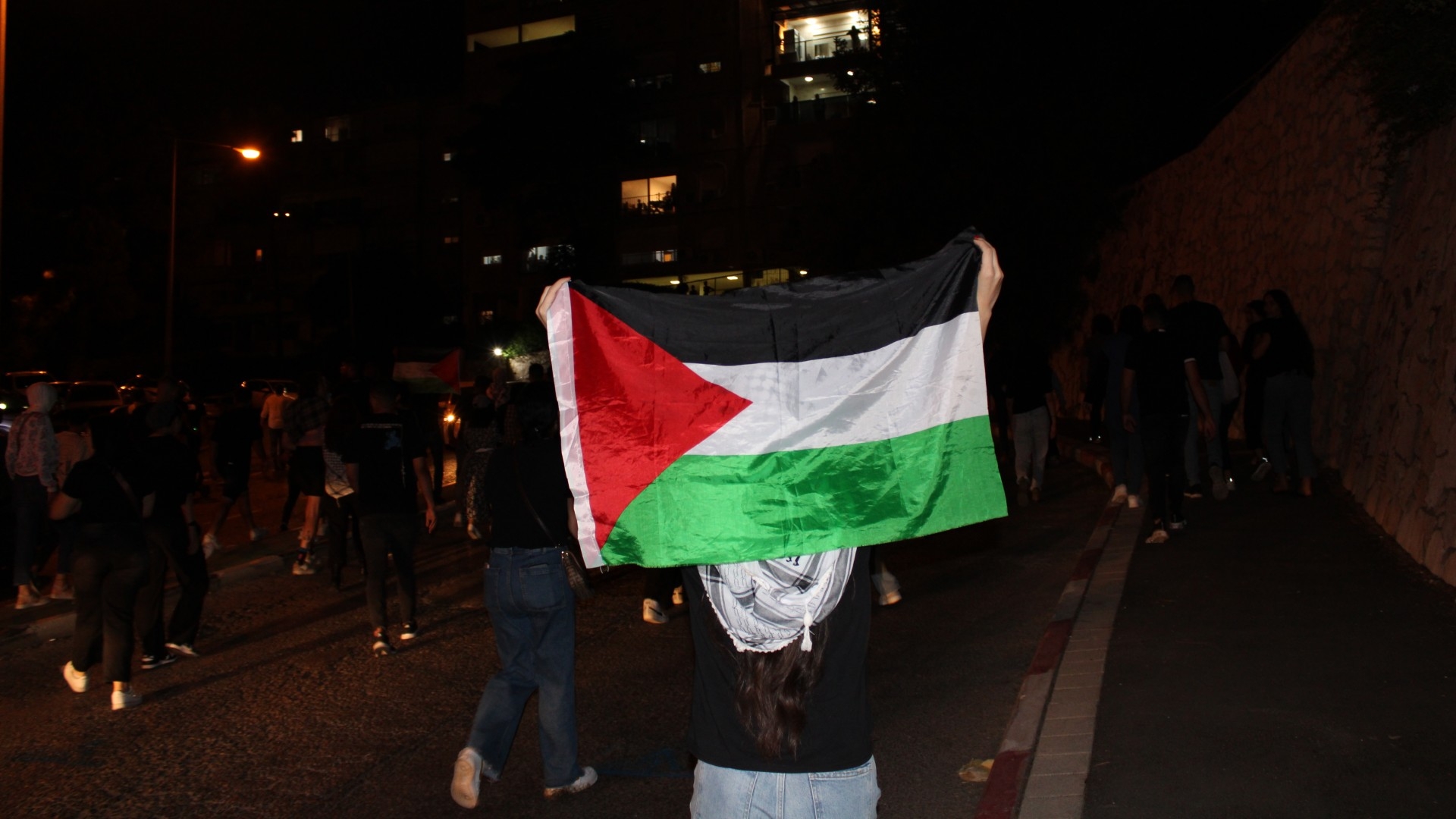
Despite months of oppression and aggression, Palestinian citizens of Israel are regularly holding protests against Israel’s war on Gaza, demonstrations that have been met with police brutality.
On Thursday evening, dozens gathered in Haifa, a northern port city with a mixed Jewish-Palestinian population.
Moments after a protest began, police attacked demonstrators, claiming they were acting illegally. Eight people were forcibly arrested by police, who protesters say beat and insulted them.
Four people were released later that night. The rest remained in custody.
As police cracked down, protesters ran through the streets of Haifa, chanting that Israel’s “genocide” in Gaza must end and calling for the liberation of Palestinian lands from Israeli occupation. They were chased by officers and mounted police, who continued to beat them.
New MEE newsletter: Jerusalem Dispatch
Sign up to get the latest insights and analysis on Israel-Palestine, alongside Turkey Unpacked and other MEE newsletters
Around 20 Jewish Israelis held a counterprotest across the street from the Palestinian one, chanting “death to Arabs” and other insults. None of the counterprotesters was arrested.
"The Israeli intimidation and scaremongering since the start of the war is subsiding," a protester told Middle East Eye, speaking on the condition of anonymity due to security concerns.
"In the last seven weeks, especially after the Rafah tents massacres started, we became more active and broke the fear and silence barrier. It is impossible to stay silent, the genocide is unbearable. If we continue amping up our activism, if we take back the streets, we will have a major role to play in the outcome of stopping the genocide."
The police tried to prevent journalists from documenting the violence, chasing them away. At least two journalists were beaten, including a reporter from Haaretz.
'We will not leave the streets until the genocide is over'
- Protester
"They silenced us since the beginning of the war. The witch-hunt was violent and intimidating, arrests over social media posts, let alone protests," a protest leader told MEE.
"We cannot stay silent anymore. We are exploding, which is a normal reaction to the carnage we are seeing in Gaza. We will not leave the streets until the genocide is over."
On Monday, more than 200 people participated in a similar protest in Haifa, which was treated in the same way by authorities. Nine people were arrested. Two of the women among them were brought to court bearing injuries from beatings.
Several more protests are planned for the coming days in various cities and villages.
On Wednesday, meanwhile, Palestinian students in various Israeli universities held a one-hour strike in protest.
Dozens of Palestinian students at the Hebrew University in Jerusalem participated in a demonstration, which was met by a hostile counterprotest by pro-war students.
Despite Tel Aviv University threatening it would involve the police if students protested, another demonstration was held there.
At the Israel Technology Institute - the Technion in Haifa, dozens of students in black uniforms participated in a silent protest.
Since the 7 October Hamas-led attack, Israeli universities and colleges have continued to suspend and expel students over the smallest of expressions of sympathy or support for Palestinian civilians in Gaza.
It is part of a trend across Israeli society, where expressions of solidarity are shut down or punished as a result of coordinated efforts between government offices, Israeli institutions and far-right groups.
Within the first two weeks of Israel’s war on Gaza, more than 100 people were arrested over expressions of solidarity with Palestinians, according to the attorney general’s office.
The Adalah Legal Center has documented at least 80 arrests based on social media posts, and 17 others during demonstrations. Many Palestinian citizens of Israel have also been dismissed from their jobs or demoted over expressions of solidarity with civilians in Gaza.
At the beginning of the war, the police illegally banned protests despite the police chief lacking the legal authority to issue such an order.
In the last few weeks, however, Palestinians in Israel have organised at least one protest each day across different cities and villages.
Middle East Eye delivers independent and unrivalled coverage and analysis of the Middle East, North Africa and beyond. To learn more about republishing this content and the associated fees, please fill out this form. More about MEE can be found here.


